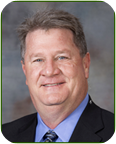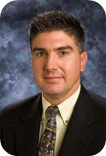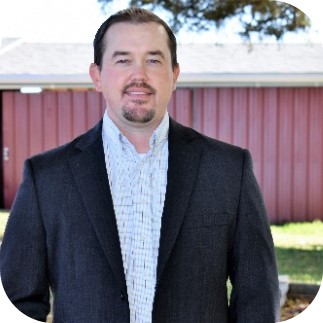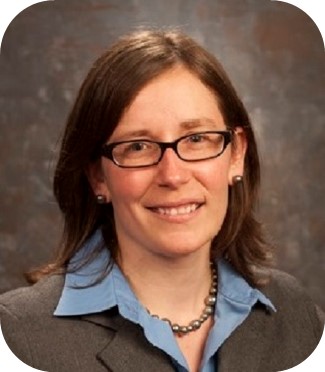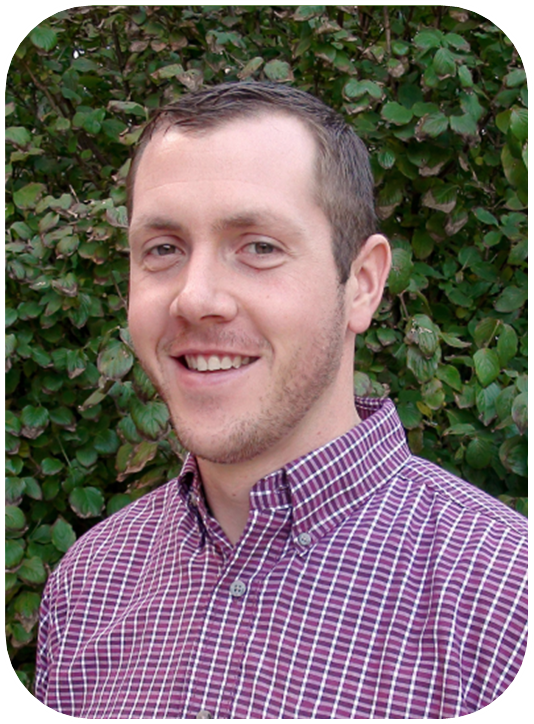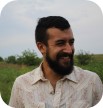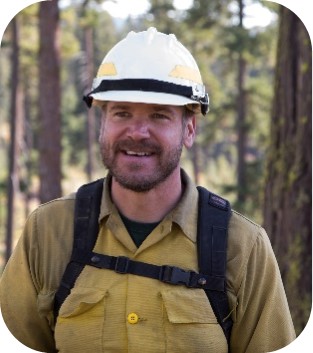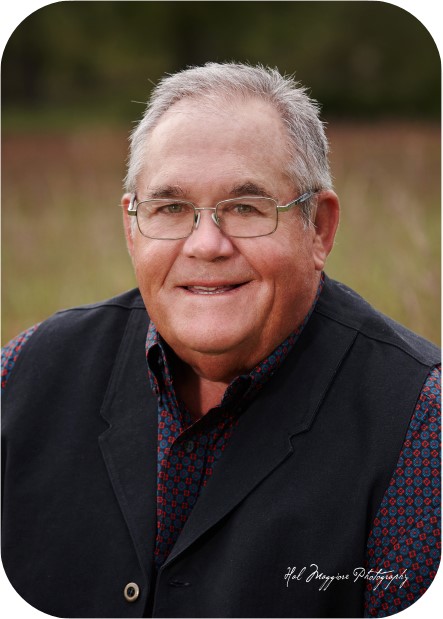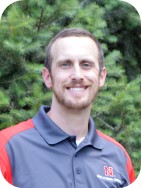2020 Proceedings: Virtual Nebraska Grazing Conference
Sponsors
The Nebraska Grazing Conference thanks the many exhibitors and sponsors who support the conference. To see a list of the 2020 sponsors, CLICK HERE.
August 11, Tuesday | Conference Opens
11:30 AM |
|
Virtual Lunch & Updates
by Walt Schacht, Interim Director, Center for Grassland Studies, University of Nebraska-Lincoln, Lincoln, NE ... wschacht@unl.edu Walter H. Schacht is the interim director of the Center for Grassland Studies at the University of Nebraska-Lincoln (UNL). Schacht’s research has emphasized ecosystem responses to grazing and associated management practices in the Nebraska Sandhills and cool-season grass pasture in the eastern Great Plains. He has been a principal investigator in studies quantifying range vegetation response to season and intensity of grazing at UNL's Gudmundsen Sandhills Laboratory and in grazing systems comparison studies at UNL's Barta Brothers Ranch. In eastern Nebraska and south-central Iowa, his studies have focused on nutrient cycling and improvement of pasture quality with the use of fire, grazing strategies, legumes, and herbicides. His former students are farm and ranch managers and in key positions with university research and extension, NRCS, FSA, US Forest Service, NRDs, Board of Educational Lands and Funds, Nebraska Department of Transportation, Nebraska Game and Parks Commission, Agricultural Research Service, and numerous conservation groups. Overall, his career has focused on undergraduate and graduate education and evaluating and developing management strategies that ensure the ecological and economic sustainability of grazing lands for multiple uses, including livestock grazing. |
12:30 PM |
|
Welcome & Opening Remarksby Daren Redfearn, Chair, Nebraska Grazing Conference Steering Committee, Professor, Department of Agronomy & Horticulture, Program Leader, Water & Integrated Cropping Systems Hub, University of Nebraska-Lincoln, Lincoln, NE ... dredfearn2@unl.edu Daren Redfearn is a professor of agronomy and Nebraska Extension forage and crop residue specialist. Dr. Redfearn is a member of a multidisciplinary team focused on enhancing and developing forage-based beef production systems. His research and extension program emphasizes annual and perennial grass management, converting cropland to forage production, and grazing of forages that can be integrated into economical and resilient crop-forage-bioenergy agricultural production systems. He also serves as extension program leader for the Water and Integrated Cropping Systems (WICS) Team co-leading a group of technical area experts in water and cropping systems to build collaborative relationships and foster engagement to address complex issues in agricultural production and natural resource systems. He is a member of the American Society of Agronomy and Crop Science Society of America and has served as co-editor for Volume II of Forages: The Science of Grassland Agriculture and as editor and co-editor for Crop, Forage, and Turfgrass Management. He received a doctorate and master’s degree in agronomy from the University of Nebraska-Lincoln with a bachelor’s degree from Texas Tech University in animal science. |
August 11, Tuesday | Weather-Ready Ranches Session
12:45 PM |
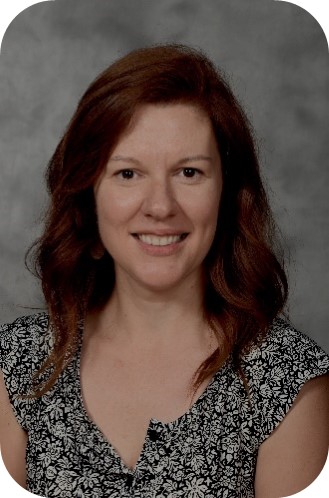 |
Past, Current, And Future Climate Trends
by Martha Shulski, Director, Nebraska State Climate Office and Associate Professor, School of Natural Resources, University of Nebraska-Lincoln, Lincoln, NE ... mshulski3@unl.edu A native of Nebraska, Dr. Martha Shulski serves as the state climatologist and is an associate professor of applied climate science in the School of Natural Resources at the University of Nebraska Lincoln (UNL). She directs the Nebraska State Climate Office, which operates the Nebraska Mesonet – a state weather monitoring program with 70 research-grade observing stations across the state. She is a regular contributor to NEBRASKAland Magazine. Martha has degrees in meteorology, agricultural meteorology and soil science. She joined UNL in 2009 and has 18 years of experience in the areas of applied climatology, weather and climate monitoring, impact assessment and stakeholder engagement. To read Martha's presentation material, CLICK HERE. |
1:15 PM
|
|
Past, Current, And Future Climate Trends On Rangeland Production And Quality
by Justin Derner, Research Leader, USDA ARS Rangeland Resources and Systems Research Unit and Director, Central Plains Experimental Range Long-Term Agroecosystem Research Site ... justin.derner@usda.gov Dr. Derner was born and raised on a cattle ranch (ranch was homesteaded in 1878) in the eastern part of the Nebraska Sandhills. He received his B.S in agricultural sciences (range management) from the University of Nebraska-Lincoln in 1991. He completed his M.S. degree in agronomy (range science) from Oklahoma State University in 1993 and a Ph.D. in rangeland ecology and management from Texas A&M University in 1996. Upon graduating, he joined ARS as a rangeland scientist with the Grassland, Soil and Water Research Laboratory in Temple, Texas. In 2002, Dr. Derner moved to the Rangeland Resources Research Unit in Cheyenne, Wyoming/Fort Collins, Colorado, and he has served as the research leader since February 2010. The mission of the Research Unit is to develop science-based management strategies for the provision of ecosystem goods and services from semiarid rangeland ecosystems. These strategies will be used to enhance decision-making by land managers using monitoring-informed adaptive management and decision support tools to improve resiliency and reduce risks for rangelands in a changing climate. Dr. Derner is a lead PI on the Long-Term Agroecosystem Research (LTAR) project with the Central Plains Experimental Range (started 2012) and was the director of the USDA Northern Plains Regional Climate Hub from 2014 to 2016. To read Justin's presentation material, CLICK HERE. |
1:45 PM
|
|
Nebraska Sandhills: Examples Of Long-Term Vegetation Responses And Quality Trends
by Mitch Stephenson, Range Management Specialist, Nebraska Extension, Scottsbluff, NE ... mstephenson3@unl.edu Mitch Stephenson began his current position in 2015 as an assistant professor and range and forage management specialist at the University of Nebraska – Lincoln Panhandle Research and Extension Center in Scottsbluff, NE. Stephenson’s research is focused on better understanding spatial and temporal relationships between plant production and precipitation in the Nebraska Sandhills and how this influences cattle grazing behavior and forage availability. Additionally, research in the Nebraska Panhandle is evaluating livestock behavior and targeted grazing strategies to better manage cheatgrass within perennial grass/cheatgrass systems. Other research includes strategies to use annual forages for grazing within crop and livestock management systems and on-ranch variability in rangeland health and productivity in the Nebraska Sandhills. To read Mitch's presentation material, CLICK HERE. |
2:15 PM |
Producer Panel |
|
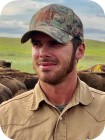 |
by John Halstead, Ranch Manager, Fawn Lake Ranch, Gordon, NE ... john.halstead@retranches.com John Halstead is the ranch manager of Fawn Lake Ranch located in western Cherry County, Nebraska. He has been focused on bison and range management in the Sandhills for the past 8 years of his career with Turner Enterprises and is currently working to incorporate prescribed fire into the range management regime at Fawn Lake. John has a background of study in agronomy, horticulture, natural resources and wildlife habitat management at Nebraska College of Technical Ag and Missouri State University. |
|
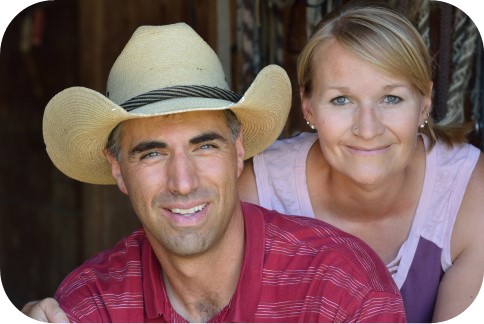 |
by Shannon & Melinda Sims, Producers, Sims Cattle Company, McFadden, WY ... melinda@simscattlecompany.com Shanon Sims is a 4th generation Wyoming rancher, operating Sims Cattle Company with his wife, Melinda, and his parents, Scott and April. Shanon and Melinda both received their bachelor degrees in animal science from the University of Wyoming and have both been very active in their local community with roles in the Volunteer Fire Department, 4-H, Conservation Districts, and Stock Growers Associations. Currently, Shanon is serving as a Board Member to the Wyoming Association of Conservation Districts and Melinda is chairperson of the Wyoming Stockgrower’s Environmental Stewardship Award Program. They were honored as America’s Best Young Farmer or Rancher 2019 by DTN’s Progressive Farmer. They and Sims Cattle Company have been in numerous publications highlighting management techniques and have had the opportunity to speak at several events, including the Beef Cow Symposium, the High Plains Ranch Practicum, and the Burleigh County Conservation District’s Soils workshop. |
|
3:00 PM |
Break |
|
3:15 PM
|
2019 Leopold Conservation Award Recipientsby Russ and Angela Sundstrom, Producers, Broken Box Ranch, Moorefield, NE ... rsundstrom@nebnet.net |
August 11, Tuesday | Ranch of the Future Session
3:30 PM |
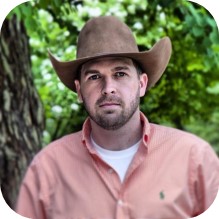 |
Using New Technology On The Ranch
by Travis Mulliniks, Assistant Professor, Nebraska Extension, North Platte, NE ... travis.mulliniks@unl.edu Dr. Travis Mulliniks is an assistant professor in range production systems at the University of Nebraska and located at the West Central Research and Education Center in North Platte, NE. He grew up on a cow-calf operation in eastern Oklahoma and received his B.S. degree in animal science from Oklahoma State University. In addition, he earned a M.S. and Ph.D. in range nutrition from New Mexico State University. Dr. Mulliniks’ research and extension objectives consist of developing an applied cow-calf research program that emphasize sustainability and economically viable management options through enhanced efficiency, productivity, and strategic nutritional management. To read Travis's presentation material, CLICK HERE. |
4:00 PM |
|
Grass-Castby Dannele Peck, Director, Northern Plains Climate Hub and Agricultural Economist, USDA ARS Crops Research Lab, Fort Collins, CO ... dannele.peck@usda.gov Dr. Dannele Peck is director of the USDA Northern Plains Climate Hub, which connects agricultural producers with science-based resources and partners to empower weather-ready and climate-smart decision-making. Since joining the USDA Agricultural Research Service in 2016, Dr. Peck has led the public rollout of Grass-Cast, a grassland forecast for ranchers in the Great Plains that can help strengthen drought preparedness and flexible stocking. Prior to joining ARS, she conducted research, outreach, and teaching for 10 years at the University of Wyoming as an associate professor of agricultural economics. Her work continues to focus on decision-making under risk and uncertainty in agriculture. Raised on a dairy farm in upstate New York, Dr. Peck was the first person in her family to earn a college degree. She holds a B.S. in wildlife biology and an M.S. in agricultural economics, both from the University of Wyoming, and a Ph.D. in agricultural and resource economics from Oregon State University. To review Dannele's presentation material, CLICK HERE. |
4:30 PM |
|
GrassSnap Update And Direction
by Ben Beckman, Beef Systems Assistant Extension Educator, Nebraska Extension, Hartington, NE ... ben.beckman@unl.edu Ben is a beef systems educator with Nebraska Extension. He grew up on a family farm in northeast Nebraska and has studied and worked with grazing and forage issues in Nebraska for 14 years. Currently, Ben provides producer support and programs focused on forage production and grazing systems, pulling from past work on mob grazing systems and current research on alfalfa and summer annual crops for inspiration. Ben has a B.S. degree in grassland ecology and management and a Master of Science in agronomy focusing on range and for-age production, both from the University of Nebraska-Lincoln. Presentation Abstract: Proper documentation of rangeland trends over time is key in making sound management decisions. To assist with this process, GrassSnap has been a tool used by producers, agency personnel, and university staff. While the current app version continues to be a useful tool, needed software upgrades have provided an opportunity to revisit how the app functions and what features are offered. |
4:45 PM |
Grazing Tool (NGLC / NRCS)
by T.L. Meyer, Beef Systems Extension Educator, Nebraska Extension, Thedford, NE ... tl.meyer@unl.edu T.L. Meyer began as the Beef Systems Educator last September, serving producers in Blaine, Cherry, Grant, Hooker and Thomas counties. Prior to that, she worked at the West Central Research and Extension Center (WCREC) for over 20 years, first as a communications associate and the last 16 years as a research tech for the beef reproductive specialist. She received her master’s degree in animal science from the University of Nebraska-Lincoln and her bachelor’s degree from Kansas State University in animal science and agricultural journalism. |
|
5:00 PM |
Virtual Breakout Rooms For Q & A
|
August 12, Wednesday | Invasive Woody Plant Management Session
11:30 PM |
|
Virtual Lunch And Updates
by Walt Schacht, Interim Director, Center for Grassland Studies, University of Nebraska-Lincoln, Lincoln, NE ... wschacht@unl.edu See Walt's earlier biography. |
12:30 PM |
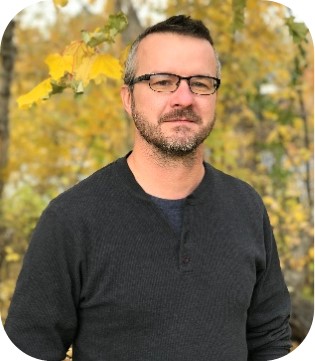 |
Cedar Management Using Prescribed Fire
by Dirac Twidwell, Associate Professor, Agronomy and Horticulture, University of Nebraska-Lincoln, Lincoln, NE ... dirac.twidwell@unl.edu Dirac Twidwell is an associate professor in agronomy and horticulture. His program is known for its modern integration of the land grant mission and innovation across teaching, research, and extension. A consistent theme of his program is to better understand how relatively simple transitions in vegetation affect societal well-being. Dirac is well-published, with papers in prestigious journals like Science, Nature journals, and PNAS, and has been an investigator on nearly $23 million in funding since joining UNL in 2013. He is a strong proponent of science for citizen and professional use, works in partnership with multiple landowner networks across multiple states to provide access to state-of-the-art scientific technologies, and supports agency decision-making at a national-level. Presentation Abstract: Fire ecology has a long-history of scientific investigation in rangelands, particularly for the management of woody plant encroachment. Here, we provide a comprehensive framework that shows how fire culture has changed in the Great Plains and how modern tools meant to replace fire do not account for important stages of woody encroachment. This is leading to underperforming investments and the continued expansion of woody plants throughout the Great Plains biome. Due to changes in people’s relationship with fire, management success stories at large-scales are few-and-far between. I discuss the few regional-scale examples of successful fire management for woody encroachment and the implications for regions that do not have an intact fire culture. |
1:00 PM |
|
Scaling Up Management For Resilient Grazing Lands: Outcomes For Livestock And Wildlifeby Caleb Roberts, Post-doctoral Researcher, Agronomy and Horticulture, University of Nebraska-Lincoln, Lincoln, NE ... croberts6@unl.edu Caleb Roberts is a post-doctoral researcher in agronomy and horticulture at the University of Nebraska-Lincoln (UNL). He works with Working Lands for Wildlife, the Sage Grouse Initiative, and ranchers to develop strategies that both improve rancher’s bottom lines and conserve wildlife. He received his Ph.D. in agronomy and horticulture from UNL, an M.S. in wildlife science at Texas Tech University, and a B.S. in science in biology and creative writing at Murray State University. Caleb has published articles on rangeland ecology and management, wildlife conservation, and natural resources policy in scientific journals such as Nature Climate Change, Biological Conservation, and PLoS ONE. Caleb is a native of Kentucky, but he currently lives in Lincoln, NE with his wife and daughter. Presentation Abstract: Grazing lands conservation is increasingly turning to broad-scale planning horizons and the co-production of science, policy, and management to leverage resources and scale-up conservation investments. Large-scale resilience management is based on principles derived from hierarchy theory and prioritizes conservation investments that secure broad-scale patterns before implementing localized management actions. Motivating such efforts has proven extraordinarily challenging in the Great Plains, where woody plant encroachment is continuing to spread and detrimentally impact multiple rangeland resources. Here, we introduce pioneering efforts to bridge new metrics from spatial resilience theory with new technological and computational capabilities in rangeland monitoring. |
1:30 PM |
|
Fire Management
by Chad Bladow, Prescribed Fire Coordinator, The Nature Conservancy-Nebraska Program, Johnstown, NE ... cbladow@tnc.org Chad Bladow has been working in land management for The Nature Conservancy since 1998. Chad has a B.S. in wildlife and fisheries biology from the University of North Dakota. In July 2001, Chad was designated as a prescribed fire burn boss for The Nature Conservancy. Since then Chad has led prescribed burns throughout the Midwest, Great Plains, Oregon and Washington. Chad worked as a wildland firefighter with the Indiana Interagency Hand Crew and the Iowa Loess Hills Hand Crew. Currently, Chad is The Nature Conservancy’s prescribed fire coordinator in Nebraska, helping private landowners burn on their lands and leading burns on Conservancy owned sites. |
2:00 PM |
Break |
|
2:30 PM |
|
Managing Re-Sprouting Woody Plants
by Scott Bodie, Consultant, Environment and Natural Resources Management, Burchard, NE Scott Bodie was born and raised on a cattle ranch in southeast Nebraska, home of the tall grass prairie. As a second generation cattleman, he owns and operates the ranch started by his parents after World War II. His father, Tom Bodie, used rotational grazing from the inception of his ranching career. Together Scott and Tom won the American Forage & Grassland Council’s Outstanding Grassland Award for Farmers and Ranchers. Scott has run a cow/calf herd, backgrounded steers, and currently provides a custom grazing service with a 21 pasture rotation. In 2005 he built a log lodge on the ranch where guests can relax, go fishing, hunting, watch wildlife, or enjoy a ranch tour. Big Blue Ranch & Lodge (www.bigblueranch.com) was featured as one of Eight Great Ecotourism Opportunities in Nebraska in the book Roaming the Plains published by the Great Plains Ecotourism Coalition, University of Nebraska. Professor Walter Schacht of the agronomy and horticulture department at the University of Nebraska brings a class of grassland ecology and management students to tour the Bodie ranch each year to use the ranch as the basis for their class management paper. Scott and his wife, Billie Kay, raised two daughters on the ranch where they learned to work and help with cattle and hay, to participate in 4-H and FFA activities and to be of service to the community. Scott studied at Peru State College and the University of Nebraska Lincoln, served 4 years in the U.S. Navy, 31 years on the Pawnee County Rural Water Board, and served on the Burchard Rural Fire Department Board. He is a member of the Baha’i Faith. |
3:00 PM |
|
Wildlife Mangement In An Ag Landscape
by Andrew Little, Assistant Professor, School of Natural Resources, University of Nebraska-Lincoln, Lincoln, NE ... alittle6@unl.edu Andrew Little is an assistant professor of landscape and habitat management, and extension wildlife specialist at the University of Nebraska-Lincoln (UNL). Andrew received his B.S. in wildlife and fisheries science from The Pennsylvania State University, M.S. in wildlife ecology from Mississippi State University, and Ph.D. in wildlife ecology from the University of Georgia. He is a wildlife spatial ecologist focused on creating innovative solutions to the growing wildlife conservation and management needs in multi-functional landscapes where there are competing interests for agricultural production, wildlife conservation, and ecosystem services. To read Andrew's presentation material, CLICK HERE. |
3:30 PM |
|
Wildlife Use Of Habitat In Response To Prescribed Fire
by Dave Londe, Graduate Research Assistant, Natural Resources Ecology and Manaement, Oklahoma State University, Stillwater, OK ... david.londe@okstate.edu Dave Londe is currently a Ph.D. student at the Oklahoma State University in Stillwater, OK. He received his M.S. from Oklahoma State University, and his B.S. from Jamestown College in Jamestown, North Dakota. His research has focused on grassland bird habitat selection in response to prescribed fire, grazing and oil and gas development in the Flint Hills Ecoregion. In particular, much of his research has focused on the ecology of Greater Prairie-Chickens. Prior to his work in Oklahoma, Dave has worked in a number of grassland systems including the prairie-potholes and shortgrass prairies of North Dakota as well as a number of grassland landscapes throughout the Midwest. While currently living and going to school in Oklahoma, Dave is originally from Cheyenne Wyoming. To read Dave's presentation material, CLICK HERE. |
4:00 PM |
Final Comments, Evaluations, Virtual Breakout Rooms For Q & A
|

